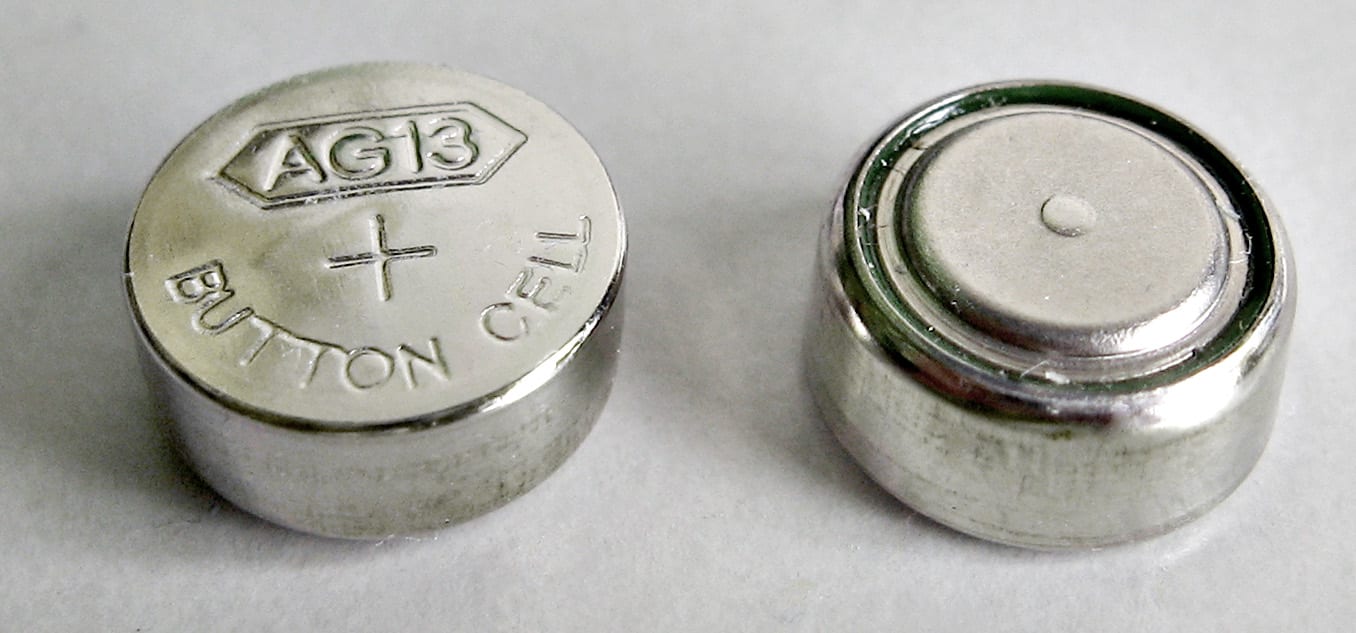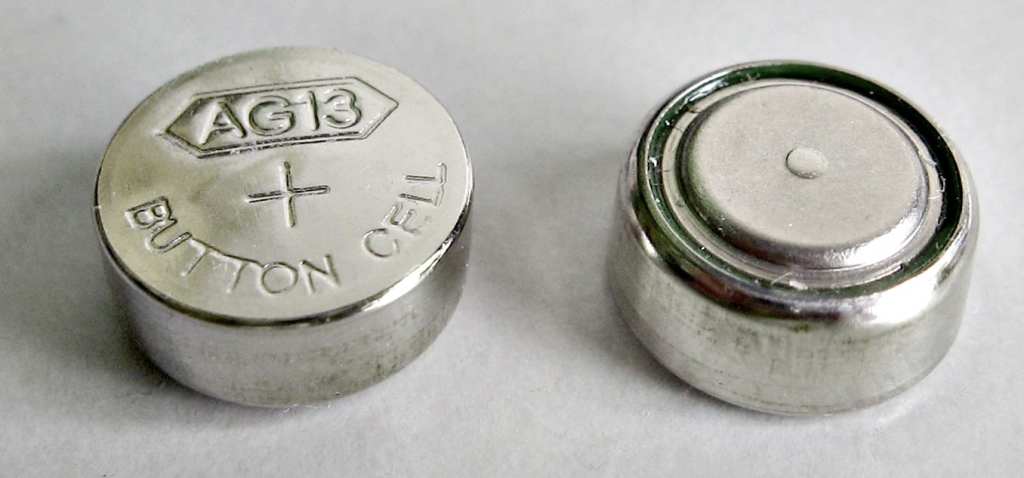Emergency rooms all over the country are reporting an uptick in the number of toddlers they see who have swallowed small objects, particularly the tiny batteries found in electronics. Seems as if we are filling our households with more and more of these items, so, inevitably, our children are getting their hands on them.

Photo Credit: Ubcule, Public domain
Kids aged one to three tend to explore their environment by putting things in their mouths. Gross, but all part of their development into, hopefully, big kids who drive their parents crazy with other habits. Moms and dads have all pulled Barbie shoes or pennies or, lord have mercy, fun-looking pills from their children’s mouths.
And every once in a while, a trip to the ER is needed.
But, a swallowed penny isn’t nearly so dangerous as a button cell battery is, and the issue has the attention of one emergency room doctor who hopes to spread the word. He conducted an experiment as a visual aid and posted the results in a Twitter video since gone viral.
Dr. Rubin wrote, “Swallowed button batteries are a medical emergency! This is an example the tissue damage that occurs in 3 hours.”
If the swallowed battery does not make its way through the entire digestive system, it can cause significant problems in the body where it has lodged. Battery acid can cause serious damage in the tissue after just a few hours.
The scariest part is that often parents don’t even know when a child swallows something they weren’t supposed to.
U.K.’s Child Accident Prevention Trust (CAPT) explains, “If a button battery, particularly a lithium button battery, gets stuck in the throat or gullet, energy from the battery can react with saliva to make the body create caustic soda. This is the same chemical used to unblock drains!”
Tragically, this can lead to internal bleeding and death.
A reply to Dr. Rubin’s video highlights the danger with a posting of what a battery looks like on x-ray compared to a relatively benign coin.
https://twitter.com/bozzvid/status/1115307827873091586
If you suspect your child has swallowed a button battery, which are usually about the size of a nickel, or any electronic that uses button batteries – key fobs, hearing aids, games – take them immediately to the nearest ER. You can also try to delay the damage being caused by getting the child to swallow honey. Honey may coat the battery until medical help is administered, but it is not a long term solution.
At home, keep kids safe by throwing out non-essential items, like greeting cards with button batteries. Other items, like hearing aids, should be put high and out of reach, along with any extra batteries. Dispose of dead batteries quickly, and teach children to stay out of storage areas.
For more information, visit the Poison Control website.






